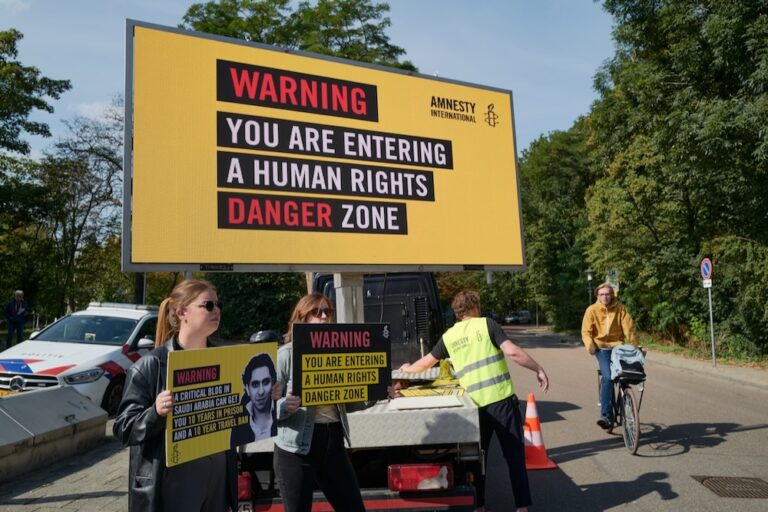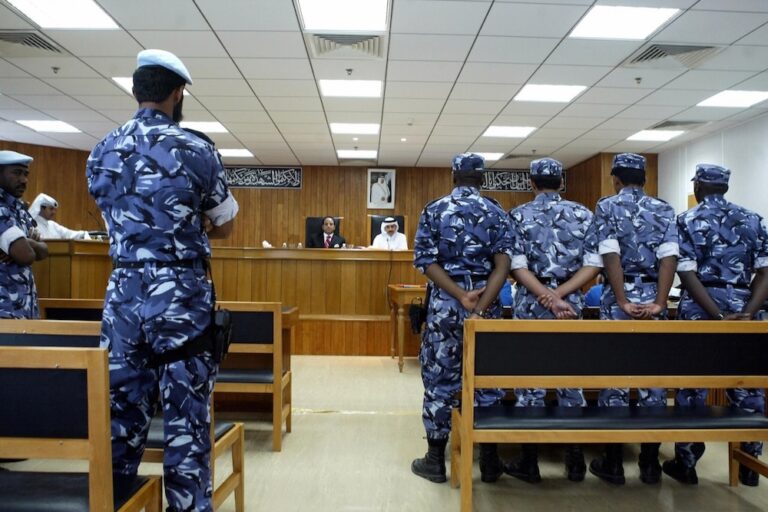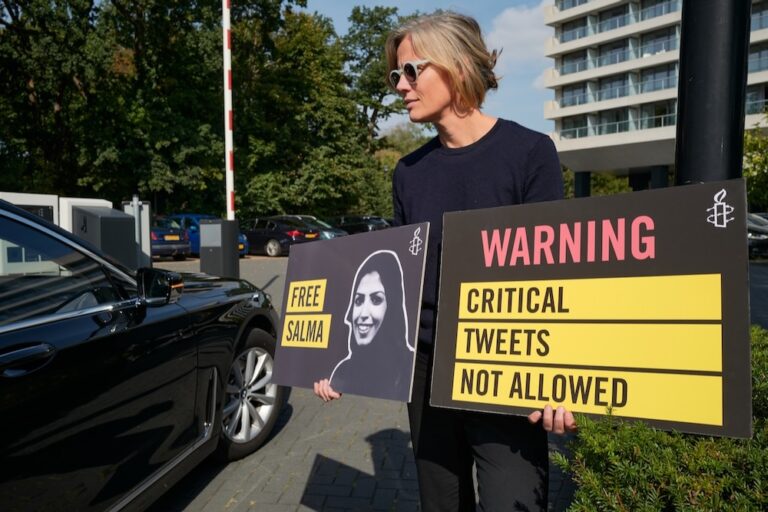The city of al-Qatif witnessed violent confrontations between the police and some protesters calling for social justice, resulting in the death of one citizen and the injury of many others.
(ANHRI/IFEX) – Cairo, 13 March 2012 – ANHRI stated today that the widespread anger felt across the city of Abha following the dispersal of a sit-in at the King Khaled University on 7 March 2012 has gone beyond Abha to other parts of the Kingdom of Saudi Arabia. Several protests have taken place in the cities of Riyadh, al-Namas, Ar’ar, al-Qatif, and al-Rabeeah in a movement unprecedented in Saudi Arabia.
Female students of King Khaled University organized a “rare” sit-in, demanding improvement in the treatment of the University’s board and the expulsion of the University Director. However, the University’s board and the Saudi authorities did not listen to their grievances. Rather, they called on the police to violently disperse them, killing a female student and injuring 54 others in the process, as well as detaining a male student who expressed solidarity with them. Subsequently, anger escalated over this action by the authorities and protests spread to universities across the Kingdom, even though the detained student had been released on the same day.
In another incident in Taibah University in the city of Medina, a student was expelled for publicly criticizing the deteriorating conditions at the University in an open meeting with the Director. This highlights the cruelty of the majority of Saudi universities towards students.
The city of al-Qatif witnessed violent confrontations between the police and some protesters calling for social justice. One citizen died and many others were injured as a result. On the other hand, the Saudi Press Agency (SPA) released a statement issued by the Ministry of Interior, in which the Ministry vowed to address “acts of terrorism” with the utmost intensity and firmness and described the protesters as “a deluded minority”. The Ministry of Interior also tried to convey that these protests are sectarian because they are concentrated in al-Qatif, where many of the Kingdom’s Shiites live, and called on the leaders of this region to condemn this minority that harms their interests, flagrantly inciting strife among the local residents.
“Only dialogue would help dissipate this social anger, not the repression and violence that characterizes the attitude of the Saudi government towards its citizens. The Saudi government has to learn the lesson that several Arab countries have taught to their rulers. The demands of justice and dignity in Saudi Arabia have to be met with change in policies, basing them on the values of freedom and human rights,” said ANHRI.


